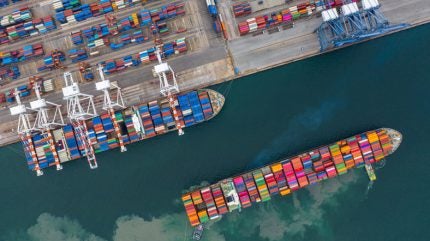
The signatories which represent a range of industries including retail, clothing and footwear, are urging governments to join, support, or align with the mission to support safe and secure maritime commerce in the Red Sea and across the globe.
The letter explained that the consequences of these attacks extend beyond immediate financial losses such as route changes which are causing port congestion; equipment shortages; and soaring shipping rates across the globe, all of which create inflationary impacts.
It added added even shipping lanes on the other side of the world from the Red Sea are beginning to be adversely affected.
The signatories underscored the ripple effects in cost and capacity issues for the industries that depend upon safe and secure maritime commerce as incalculable, particularly since global transportation is already strained from reduced access to the drought-ridden Panama Canal.
AAFA president and CEO, Steve Lamar, believes it is imperative that governments unite behind a zero-tolerance approach to deter attacks on commercial vessels and seafarers in the Red Sea, and anywhere in the world.
Lamar said: “The prosperity of millions of people who are employed in our industries and in the global maritime industry depends on safe and secure freedom of navigation.”

US Tariffs are shifting - will you react or anticipate?
Don’t let policy changes catch you off guard. Stay proactive with real-time data and expert analysis.
By GlobalDataWhile Matthijs Crietee, secretary general of IAF, added: “These attacks have already caused upwards of $80bn in cargo to be diverted around the Cape of Good Hope. Travelling around the Cape of Good Hope adds at least 2-3 weeks of travel and hundreds of thousands in additional fuel and labour costs compared to travelling through the Suez Canal. This alternative route becomes even more challenging during the Southern Hemisphere winter months…cooperation among nations is essential to signal the importance of free passage in international waters.”
The letter also highlighted a multinational security initiative, Operation Prosperity Guardian, which has drawn the participation of at least 23 countries to date, emphasising the pressing need for governments to work together in defending maritime safety and security, which is vital for so many industries and critical for the global economy.
Industries across the world including the apparel sector, are currently plagued with delayed shipping times and increased costs as a result of disruption in the Red Sea.
Navdeep Sodhi, a partner at the Zurich, Switzerland-based consultancy Gherzi Textil Organisation, noted: “The immediate impact is an increase in transportation costs, longer lead times, and higher inventories, but the medium to long term also needs to be taken into account, on the impact on brands’ sourcing. What’s clear is that most of the $100bn in textile and clothing exported to Europe passes through the Red Sea route.”



